1.
Is it a linguistic coincidence or an undeclared prophesy?
But 60 years after Mao Zedong approved
The scheme for simplifying Chinese characters
We are now living in an open & reformed age, where
愛/ai/ [love] has become feeling without heart : 爱
親/qin/ [kinship] someone who is not to be seen: 亲
兒/er/ [son] a person without a brain : 儿
郷/xiang/ [village] a place where there are no men: 乡
厰/chang/ [factory] a building with nothing inside: 厂
産/chan/ [manufacture] a process without production: 产
雲/yun/ [cloud] a nimbus offering no rainfall:云
開/kai/ [open] an action to break something doorless: 开
導/dao/ [lead] a guidance without the Way: 导
2.
More than half a century long after
The simplification of classic Chinese characters
And almost half a century well after
China opened its doors & began its reforms
To shake off its deformities and archaisms:
魔 /mo/ remains the same as魔 [evil], so does
鬼 /gui/ as鬼[ghost], so does
偷 /tou/ as偷[steal], so does
黑 /hei/ as 黑[darkness], so does
贪 /tan/ as 贪[greed], so does
赌 /du/ as 赌[gamble], so does
毒 /du/ as 毒[poison], so does
贼 /zhei/ as 贼[thief], so does
骗 /pian/ exactly as 骗[cheat,], which remains
As unchangeable as Chinese per se, or does it not?
About the Author
Yuan Changming grew up in a remote village, started to learn the English alphabet in Shanghai at age nineteen and published monoragpohs on translation before leaving China. With a Canadian PhD in English, Yuan edits Poetry Pacific with Allen Yuan in Vancouver. Yuan began to write and publish fiction in 2022, his first novel Bamakoola: Paradise Regained is due out in 2024.
